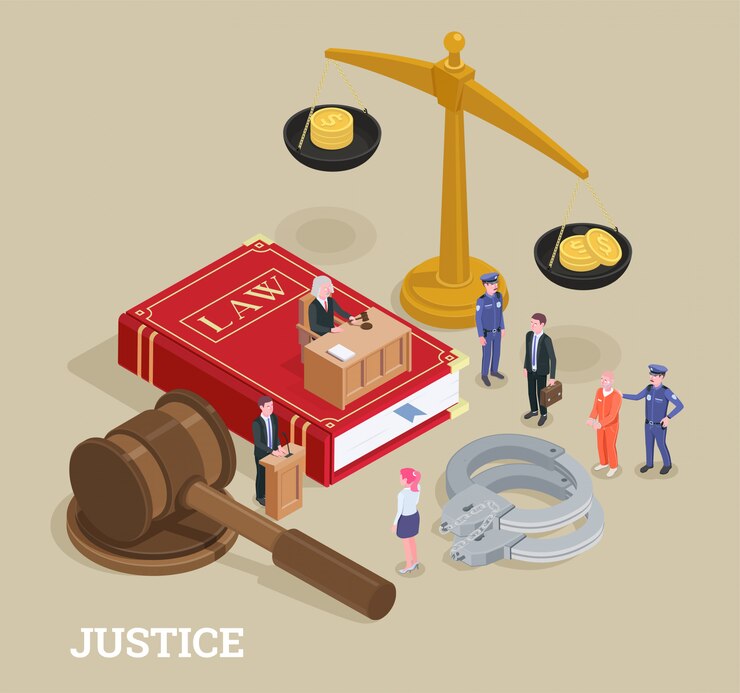
Judgments concerning money are important when it comes to litigation law in the Philippines, especially in instances where the claim involves financial damages. In most lawsuits, whether it is for the individual or the entities involved in litigation, it is usually the compensation for the damages caused or reacting to the monetary claims. Litigation lawyer Philippines are qualified individuals whose role is to advocate for clients in the courts and get appropriate monetary terms in compensation, restitution, or fines.
Monetary Judgments in Philippine Litigation
Monetary judgment or monetary judgment award refers to the amount of money ordered by the court to be paid to the winning party of a suit. In the Philippines, these are typically given to refinish loss suffered by an individual or company as a result of another person’s wrongdoing, carelessness, or violating an agreement. Monetary Judgments may also mean awards given due to pain and suffering, in commercial litigation or unfulfilled agreements.
Role of Litigation Lawyers in Monetary Judgments
A key aspect of ensuring just monetary decisions is the role of litigation lawyers in the Philippines. Their work begins with the assessment of the case and collection of evidence and ends with the court representation and enforcement of the judgment. In the cases where the outcome is a monetary judgment, the outcome of the case would largely depend on the skill of the lawyer to make a rational and reasonable case with enough evidence.
Case Preparation and Evidence Gathering
An important role of a litigation attorney is to evaluate the damages. This means knowing the claims of the client and the types of damages suffered. For example, if a client is a business that has been economically injured due to the breach of a contract, the attorney will review the books of accounts, contracts, and financial records in support of the claims. In the instance of injury, the claim for both the physical damage and the psychological or moral damage may be supported by medical records and testimonies from experts.
Legal Strategy and Negotiation
Litigation solicitors enjoy strategizing for effective monetary judgment wins. This process involves figuring out how best to domicile the client’s case, choosing witnesses, and building arguments that conform to Philippine laws. Moreover, lawyers interact with the client in other cases, particularly if settlement outside court is a viable option. In many cases, a well-planned negotiation strategy can result in a monetary settlement without dragging the parties into costly and time-wasting litigation.
Courtroom Advocacy
In circumstances where reconciliation cannot be achieved, the litigation lawyers emphatically plead their client’s case in court for compensation. A great deal of cognizance of the procedural and substantive laws and a good deal of hosting skills are prerequisites to one’s ability to counsel in a court of law. The lawyer needs to be articulate in providing reasonable evidence, conducting cross-examination, and dealing with oppositional rhetoric as these assist in getting a positive court outcome in monetary terms.
Enforcement of Judgments
Securing a monetary judgment is merely the winning stage of the entire litigation process; enforcement of that judgment is yet another important step. Litigation solicitors in the Philippines frequently help their clients in enforcing court judgments, of the adverse party in particular, who refuses to settle. This may also entail extra-legal actions such as garnishment of wages, attachment of properties, or even issuance of contemptuous orders.
Factors Influencing Monetary Judgments in Courts
Severity of Harm or Loss
The measure of damage is a significant aspect of how much monetary judgment is awarded. Courts can examine the level of suffering – be it physical, emotional, or financial – ruling in favor of larger compensation sums in instances of extreme injuries and great financial damage.
Evidence Quality and Availability
Case results are influenced by the quality of evidence produced. Such evidence can support claims for compensatory and moral damages, resulting in higher monetary awards. A lot of time and resources are spent by lawyers in collecting and looking for relevant documents, testimony of witnesses, opinions of experts, and any other illustrative evidence to reinforce their client’s stance.
Good Faith and Bad Faith
In the Philippines, the issue of whether or not a defendant has acted in good or bad faith has a bearing on the verdict. Courts may impose exemplary damages if the plaintiff can prove that the defendant acted out of spite, gross negligence, or deliberate wrongdoing. An experienced courtroom litigator will underscore instances of bad faith to support the emotional claims for compensatory and punitive damages made on the client’s behalf.
Mitigation of Damages
It is anticipated that a party to the dispute would take averagely indispensable steps to lessen his or her losses. The opposite may lead to lower amounts awarded by the court. For this reason, litigation lawyers recommend the steps to take to reduce losses without decreasing the chances of winning their client’s case.
Legal Precedents
When it comes to the award of damages, courts in the Philippines also take into account the existence of legal precedents. The foundation for ascertaining the reasonable amount of damages is grounded on past decisions delivered in an analogous case. Lawyers who have extensive experience in vicious litigation know how to utilize relevant judicial determinations to bolster their client’s case and subsequently alter the court’s view on the potential damages awarded.
Key Takeaway
In the context of litigation law in the Philippines, monetary judgments are important as they serve as a form of financial compensation to the aggrieved parties. Please understand that these types of cases are quite complicated, as there are many factors to consider – preparation for the trial, courtroom representation, and enforcement of the court’s decisions. The litigators know how to build a case having in mind the laws of the Philippines so that the clients may get their injuries compensated.

